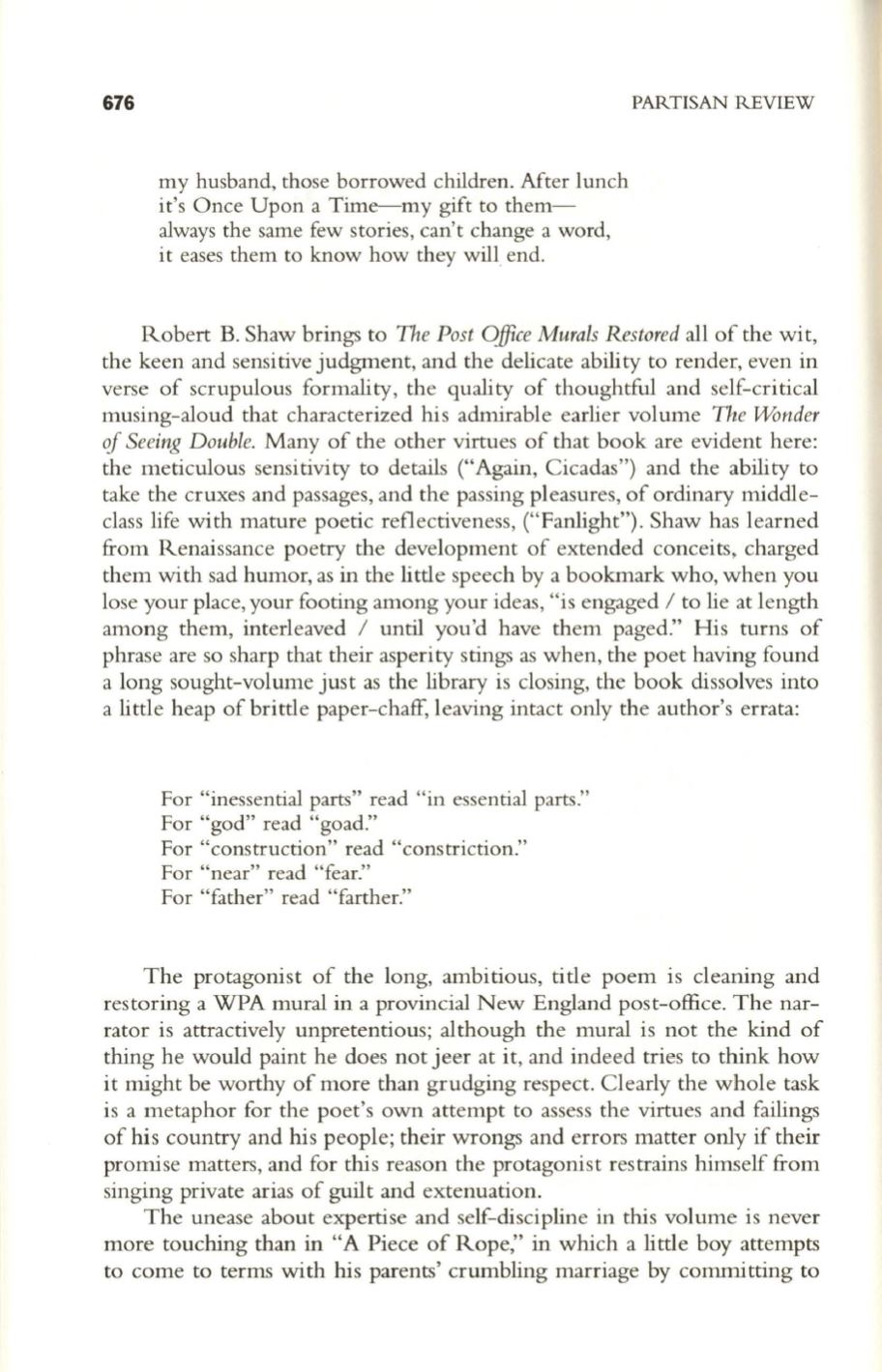
676
my husband, those borrowed children. Mter lunch
it's Once Upon a Time--my gift to them–
always the same few stories, can't change a word,
it eases them to know how they will end.
PARTISAN REVIEW
Robert B. Shaw brings to
The Post Office Murals Restored
all of the wit,
the keen and sensitive judgment, and the delicate ability to render, even in
verse of scrupulous formality, the quality of thoughtful and self-critical
musing-aloud that characterized his admirable earlier volume
The Wonder
of Seeing Double.
Many of the other virtues of that book are evident here:
the meticulous sensitivity to details ("Again, Cicadas") and the ability to
take the cruxes and passages, and the passing pleasures, of ordinary middle–
class life with mature poetic reflectiveness, ("Fanlight"). Shaw has learned
from Renaissance poetry the development of extended conceits, charged
them with sad humor, as in the little speech by a bookmark who, when you
lose your place, your footing among your ideas, "is engaged / to lie at length
among them, interleaved / until you'd have them paged." His turns of
phrase are so sharp that their asperity stings as when, the poet having found
a long sought-volume just as the library is closing, the book dissolves into
a little heap of brittle paper-chaff, leaving intact only the author's errata:
For "inessential parts" read "in essential parts."
For "god" read "goad."
For "construction" read "constriction."
For "near" read "fear."
For "father" read "farther."
The protagonist of the long, ambitious, title poem is cleaning and
restoring a WPA mural in a provincial New England post-office. The nar–
rator is attractively unpretentious; although the mural is not the kind of
thing he would paint he does not jeer at it, and indeed tries to think how
it might be worthy of more than grudging respect. Clearly the whole task
is a metaphor for the poet's own attempt to assess the virtues and failings
of his country and his people; their wrongs and errors matter only if their
promise matters, and for this reason the protagonist restrains himself from
singing private arias of guilt and extenuation.
The unease about expertise and self-discipline in this volume is never
more touching than in "A Piece of Rope," in which a little boy attempts
to come to terms with his parents' crumbling marriage by committing to


